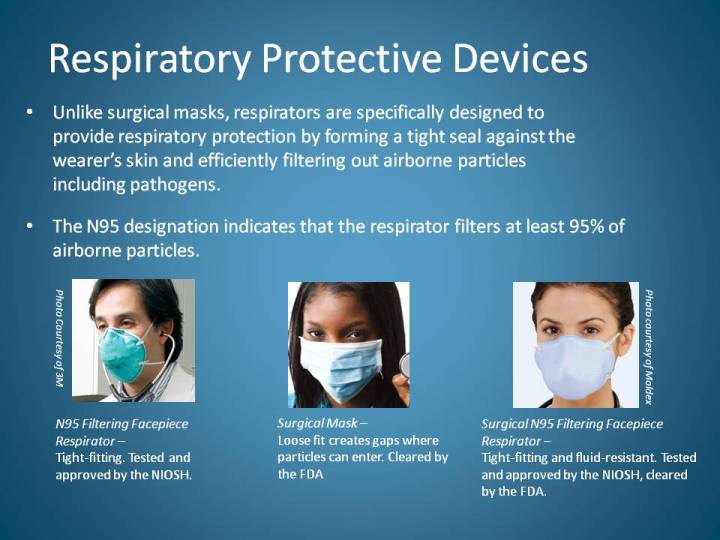| front |1 |2 |3 |4 |5 |6 |7 |8 |9 |10 |11 |review |
 |
RESPIRATORS In most instances in healthcare settings, a NIOSH-approved N95 filtering facepiece respirator is used to protect wearers from airborne particles, including pathogens. Please note N95s do not provide protection against gases, vapors, or spray, and may provide little protection against direct liquid splashes. SURGICAL MASKS ARE NOT RESPIRATORY PROTECTION A surgical mask can help block large particle droplets, splashes, sprays or splatter that may contain germs, viruses, and bacteria from reaching the nose and mouth. However, surgical masks are primarily intended to protect the patient from the healthcare worker by reducing exposure of saliva and respiratory secretions to the patient. They do not form a tight seal against the skin or filter very small airborne pathogens, such as those involved in airborne disease transmission. SURGICAL N95 RESPIRATORS A surgical N95 respirator provides the respiratory protection of an N95 respirator and the splash and spray protection of a surgical mask. These products are approved by NIOSH as N95 respirators and cleared by the Food and Drug Administration (FDA) as medical devices.
|